The Demand for Multi-Crew Pilot License (MPL) Training: Is It the Future of Airline Hiring?
Becoming a pilot requires various certifications. The most prominent licenses are the PPL, the CPL, the ATPL, and the Multi-Crew Pilot License (MPL).
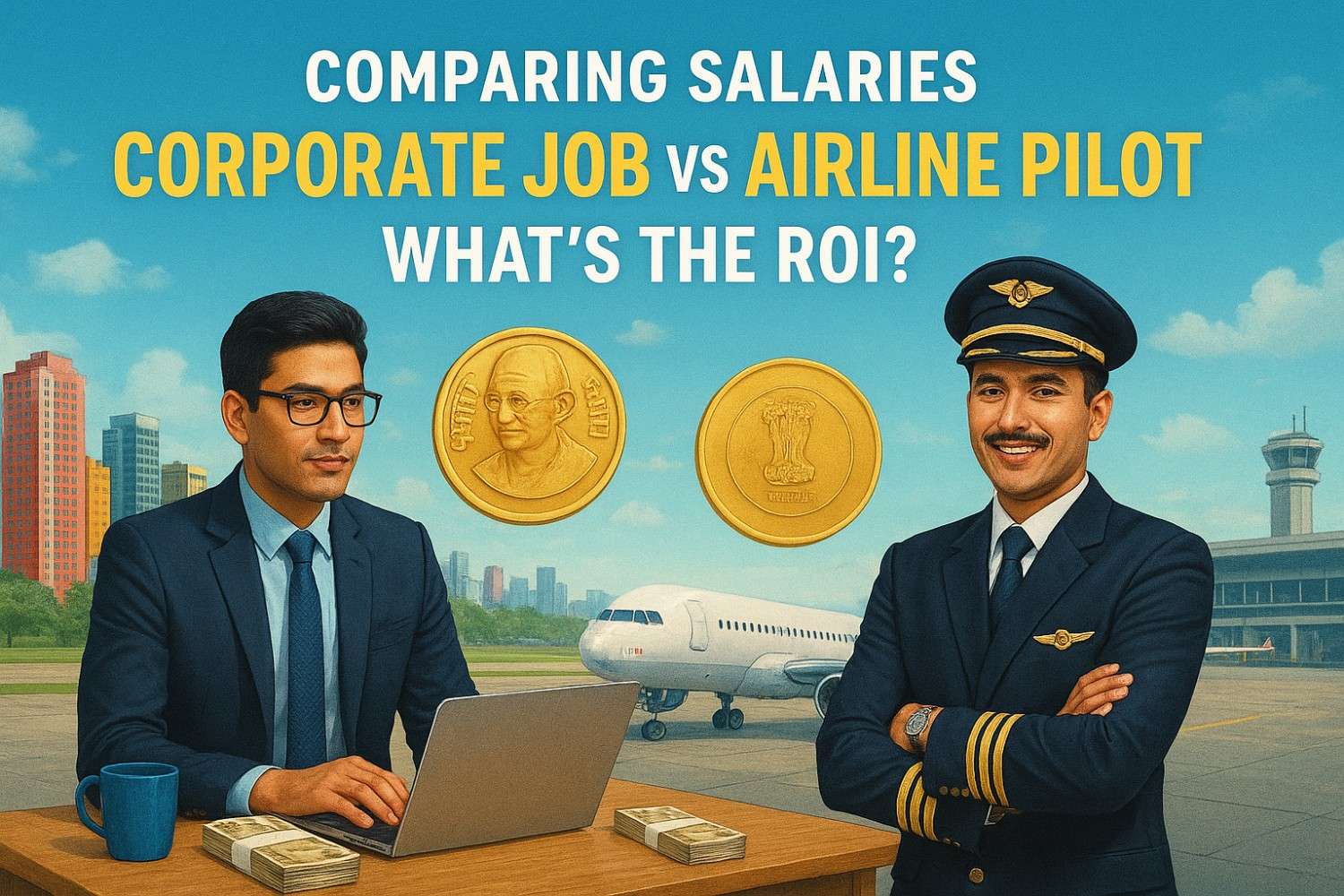
In a country like India, where competition for education and careers is very high, the first question on the minds of every student and their parents is, “How much does this career earn?” and the second question is, “What is the return on investment (ROI)?” Today, we will compare two popular career options, corporate jobs and airline pilot jobs. Both fields require hard work, extensive study and specialized skills, but the earnings and career growth opportunities are perceived differently in each.
In this blog, we will delve into the details of the education required for these two professions, the starting salary, potential for future growth and, most importantly, which career offers a better return on investment.
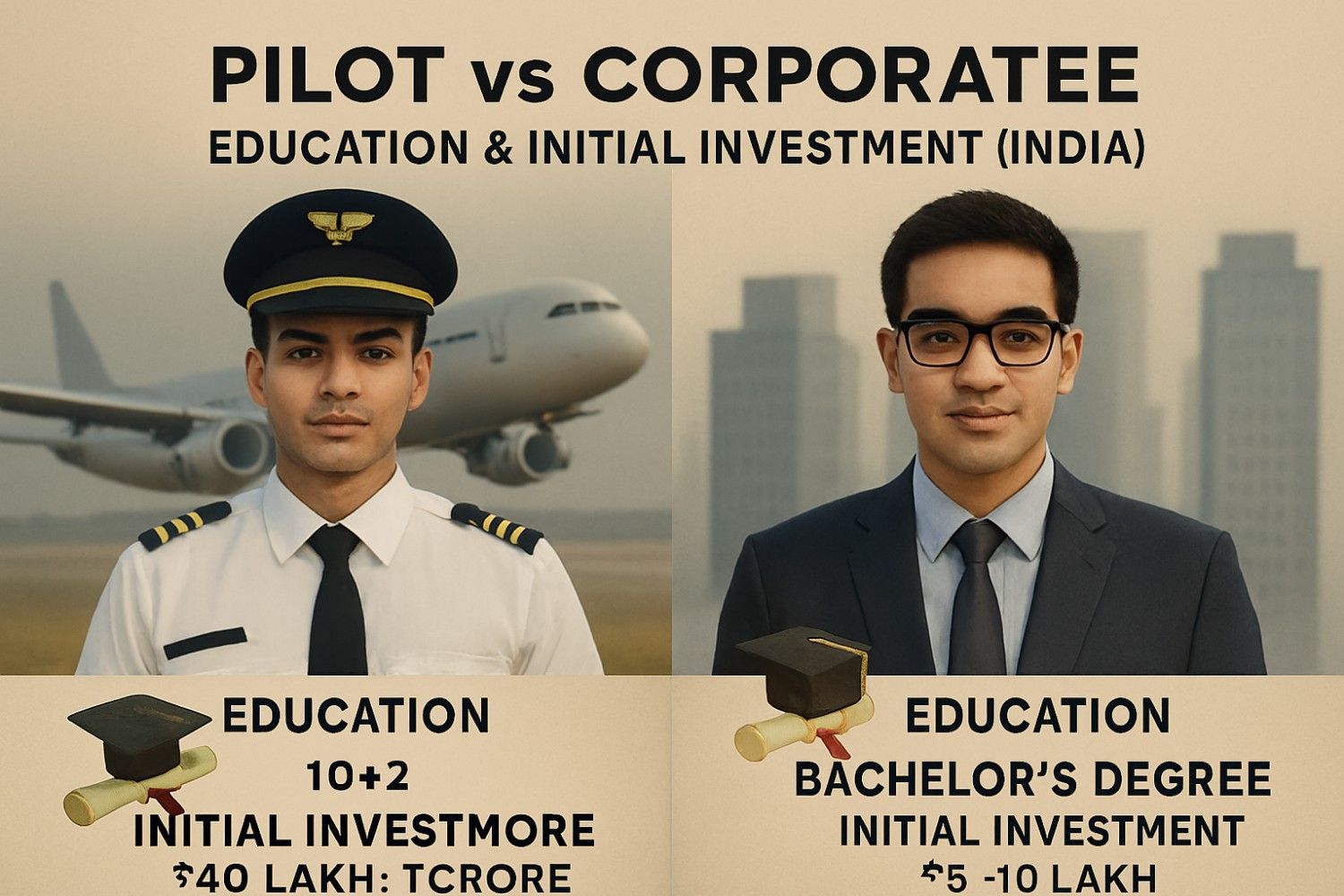
Let's examine the education and initial investment required for both types of jobs in India.
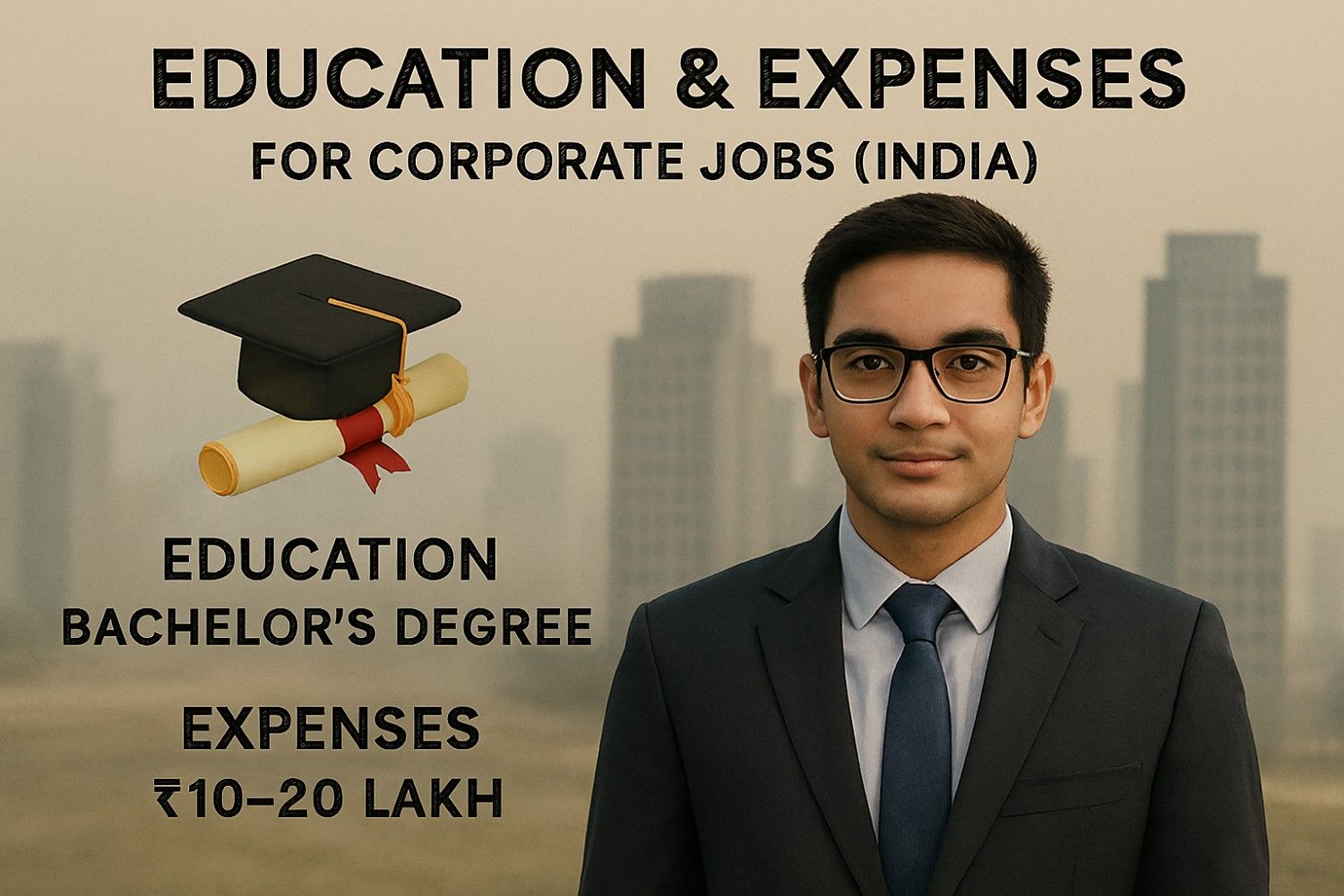
Getting a job in the corporate sector usually requires a Bachelor’s degree (B. Com, BBA, B. Tech, etc.). Professional degrees, such as an MBA or CA, may also be required for higher positions. If we look at the cost of education of an average corporate professional, it can be something like this:
Graduation: ₹2 lakh to ₹8 lakh
MBA: ₹12 lakh to ₹25 lakh
Thus, the total investment for a corporate career can range from ₹5 lakh to ₹30 lakh.
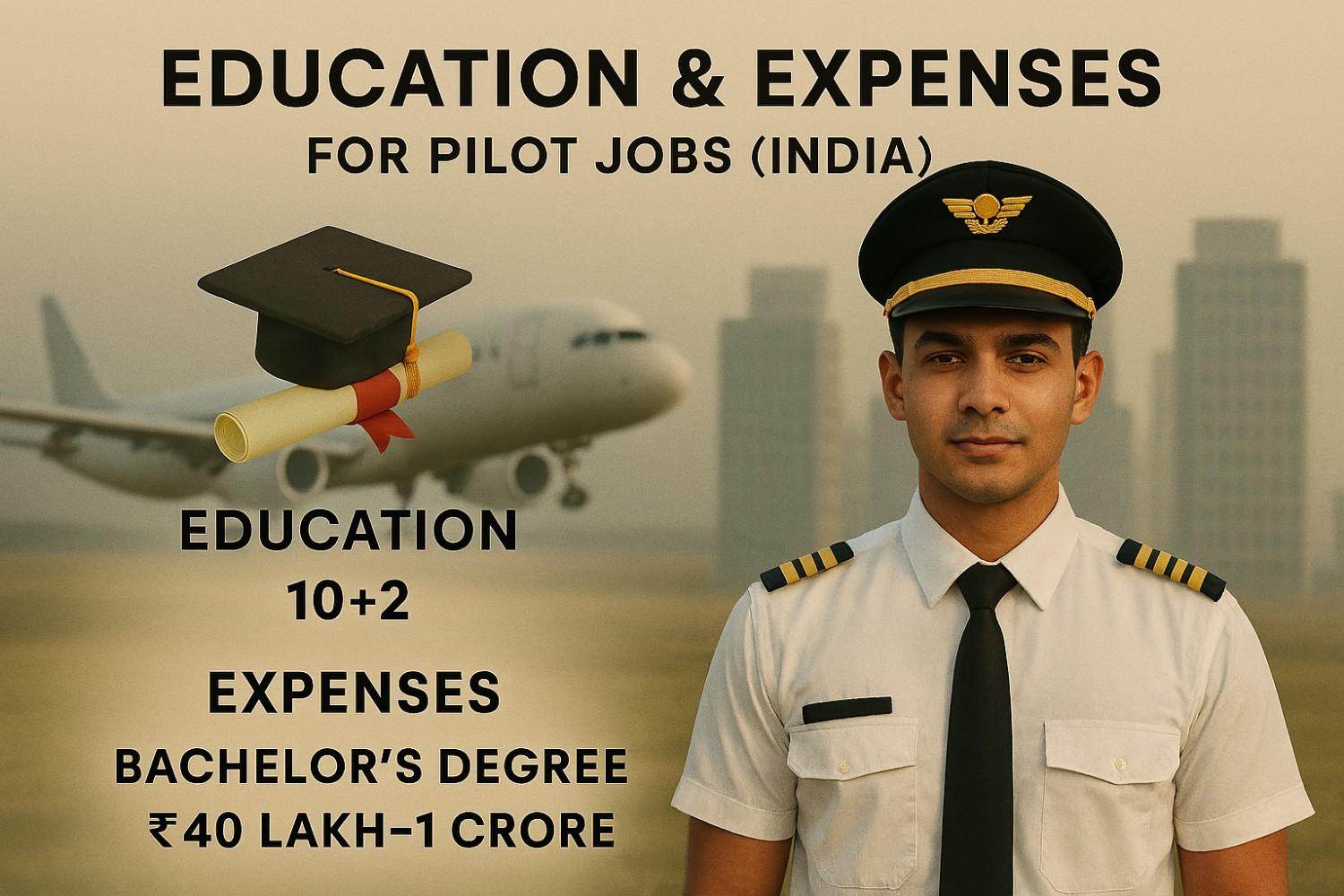
Becoming an airline pilot is an extremely expensive and challenging career. No special degree is required for this, but flying training is necessary, which is done from a flying school recognized by DGCA.
Thus, the total investment required to become a pilot can be approximately 1 crore or more.
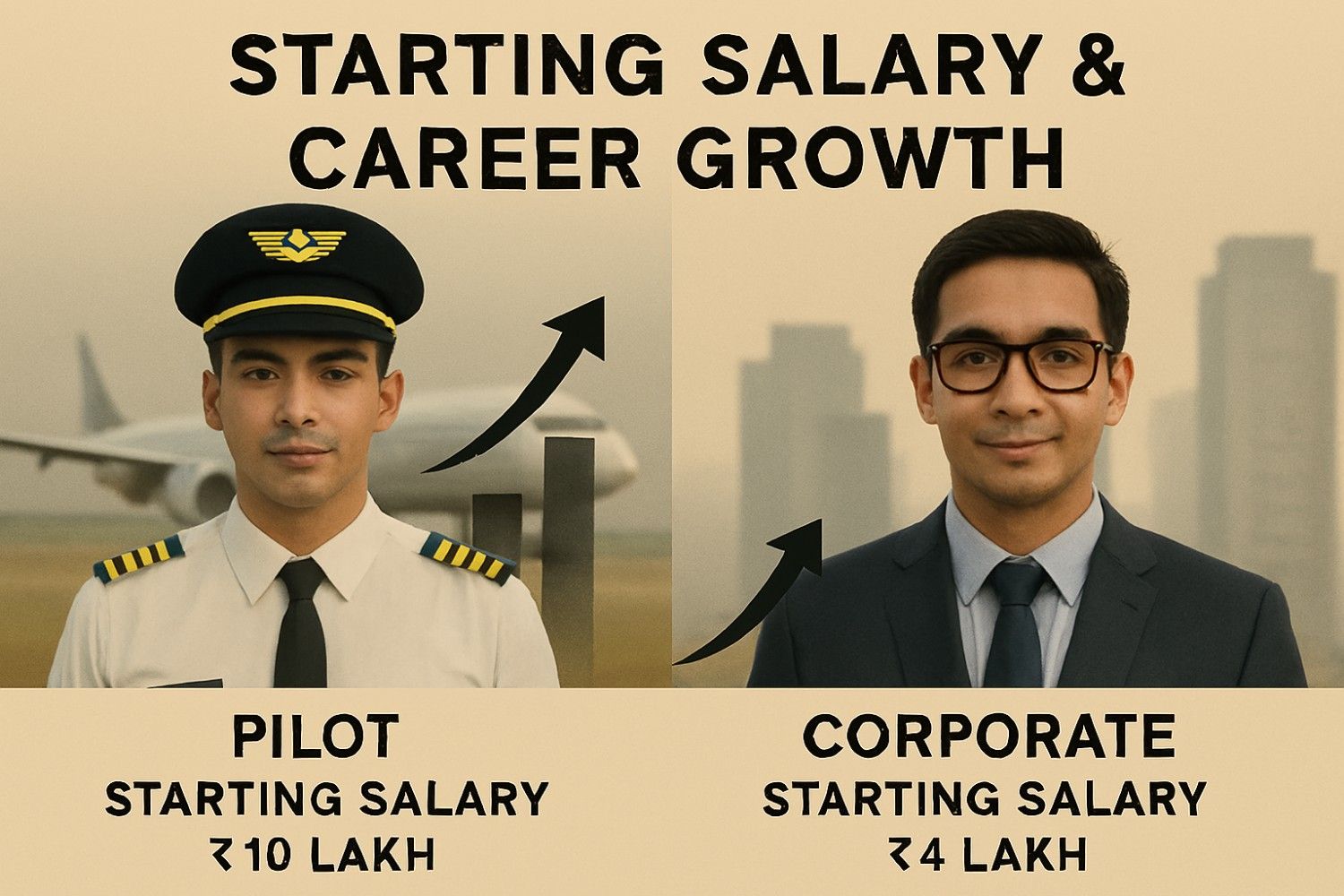
Let us look at the starting salary of corporate jobs as well as pilot jobs, to get a clearer picture of which type of job has a better ROI.

The corporate sector is highly diverse, encompassing various departments, including IT, Finance, Marketing, Operations, HR, and others. So, the salary depends on the role and the industry.
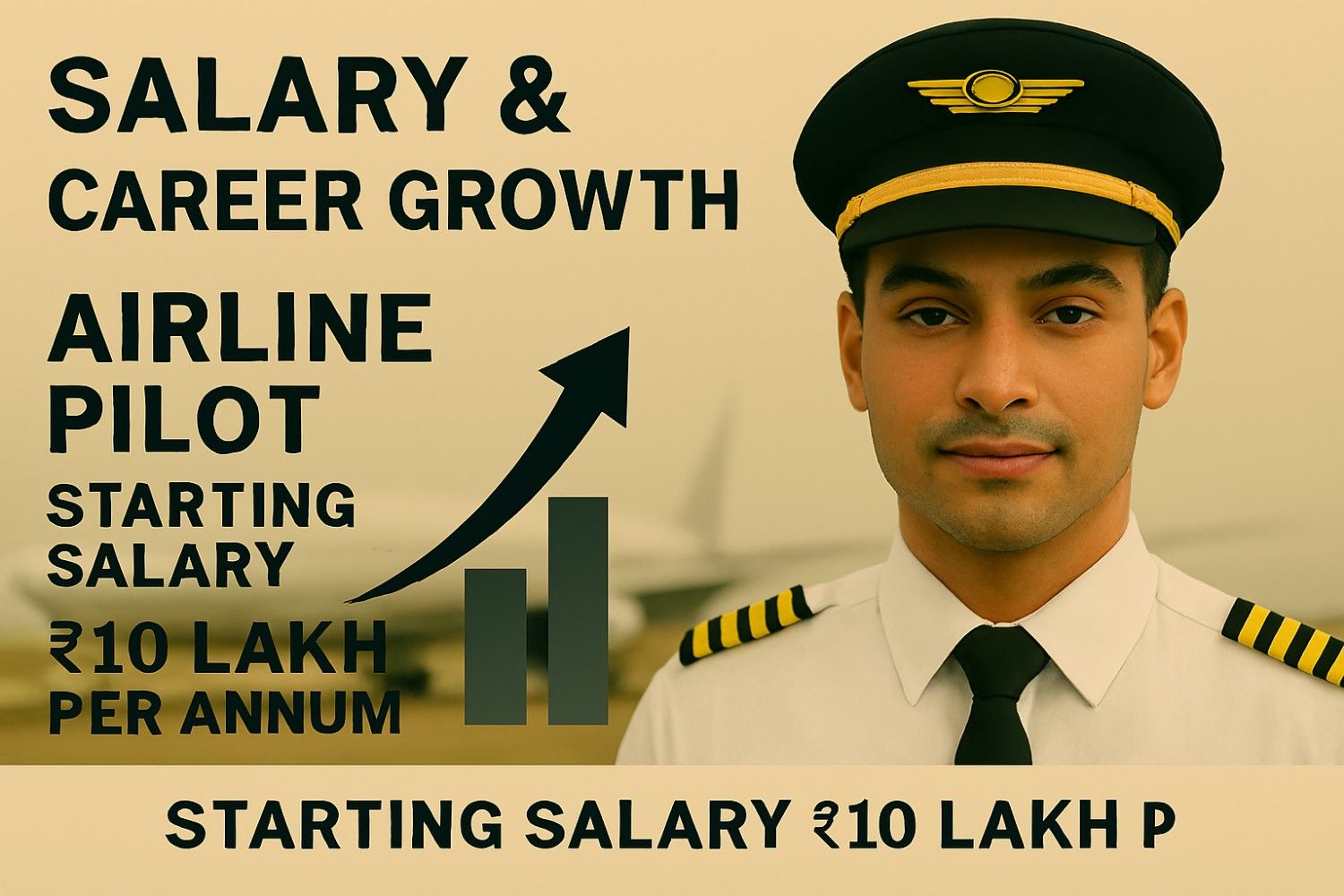
A pilot's earnings depend on their rank (First Officer, Captain) and the airline. Initially, the earnings may be limited, but growth is rapid.
However, pilots' jobs also come with challenges such as shifts, location transfers, maintaining medical fitness, and license renewal.
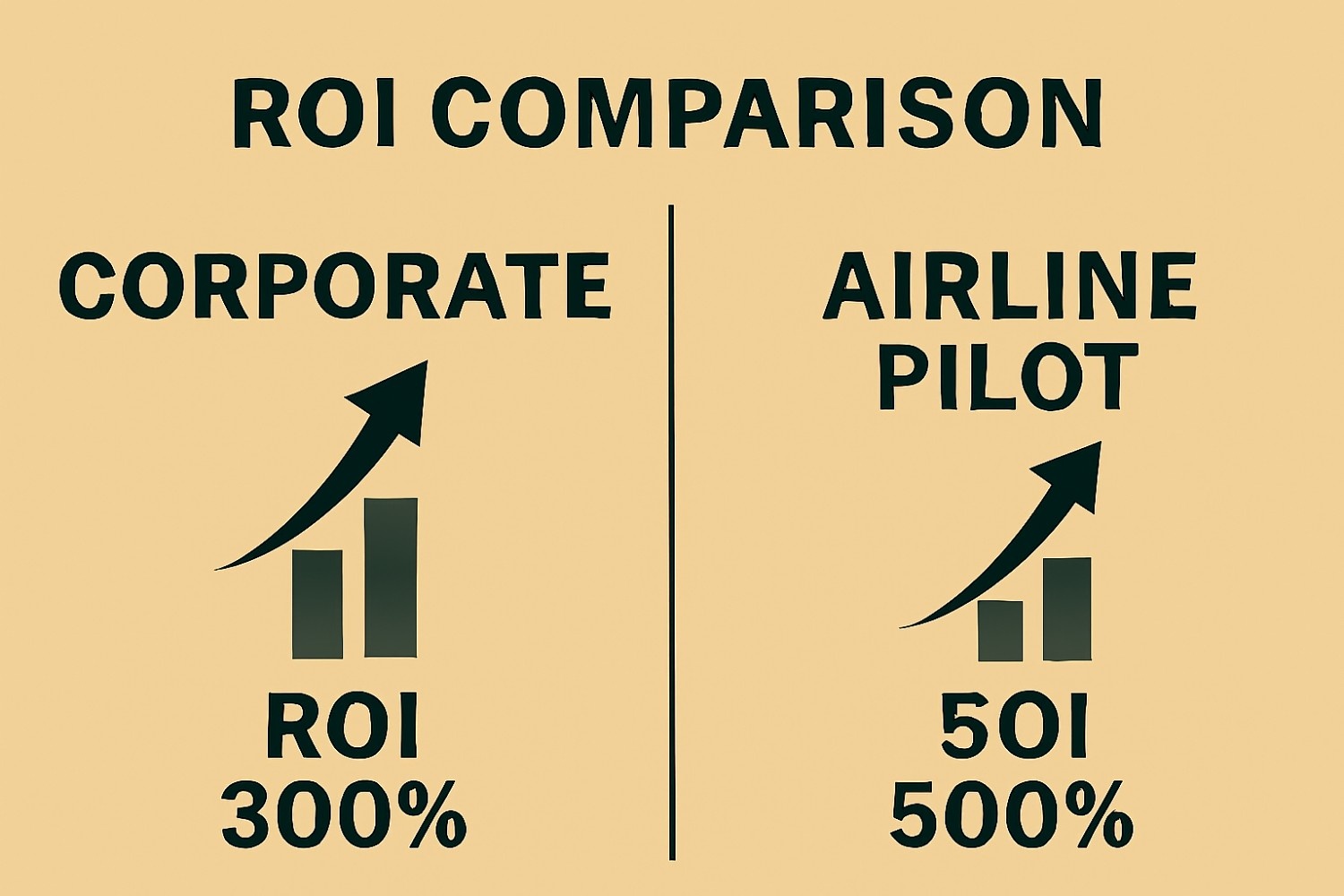
Let us compare the return on investment between a corporate job and becoming an airline pilot.
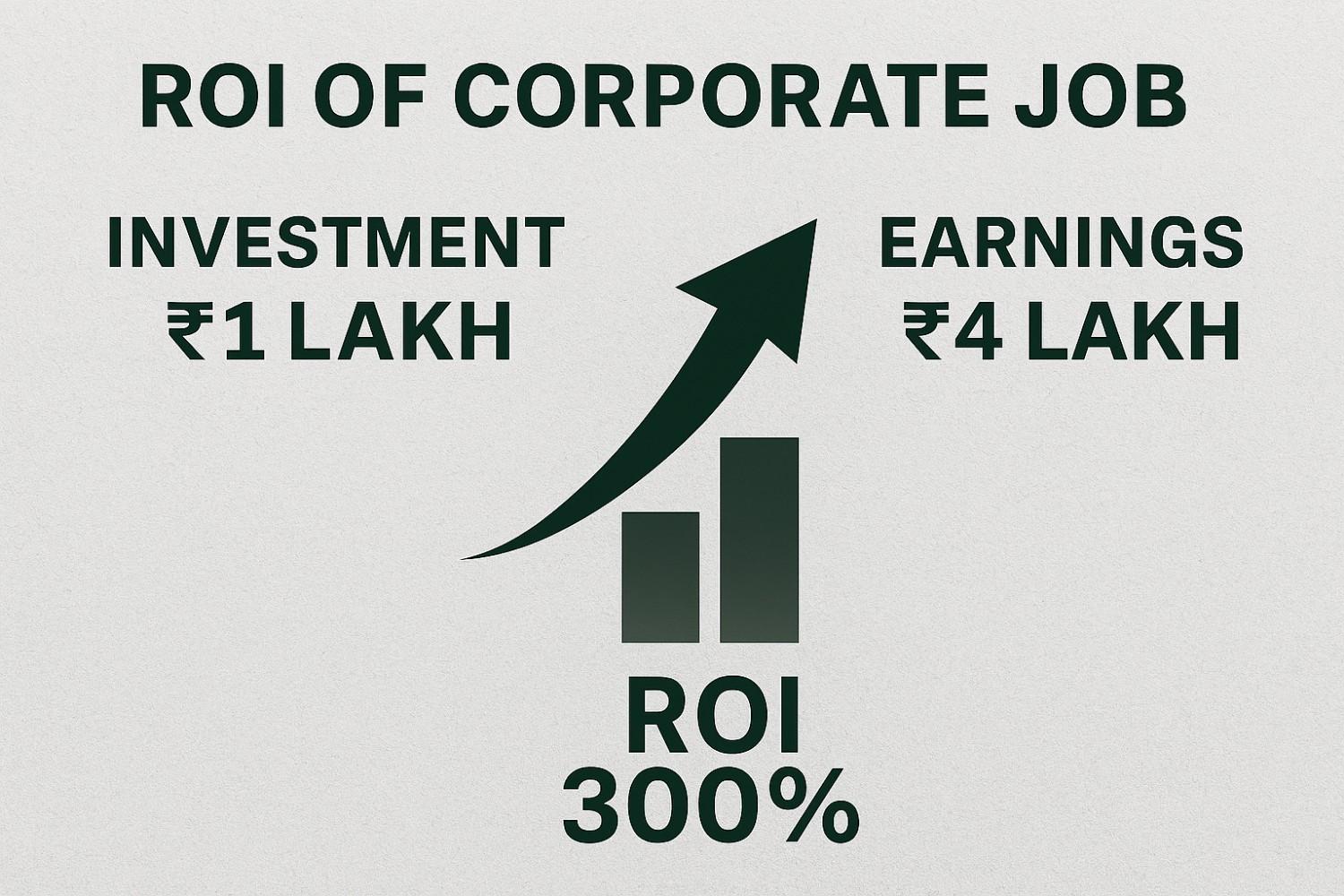
If one spends ₹20 lakh on an MBA and earns an average of ₹12 lakh per annum. According to this, it will take him/ her about 2 to 3 years to recoup his investment. However, if someone earns an MBA from a tier-2 college and their annual salary is ₹6 lakh, the ROI period can increase to 4–5 years.
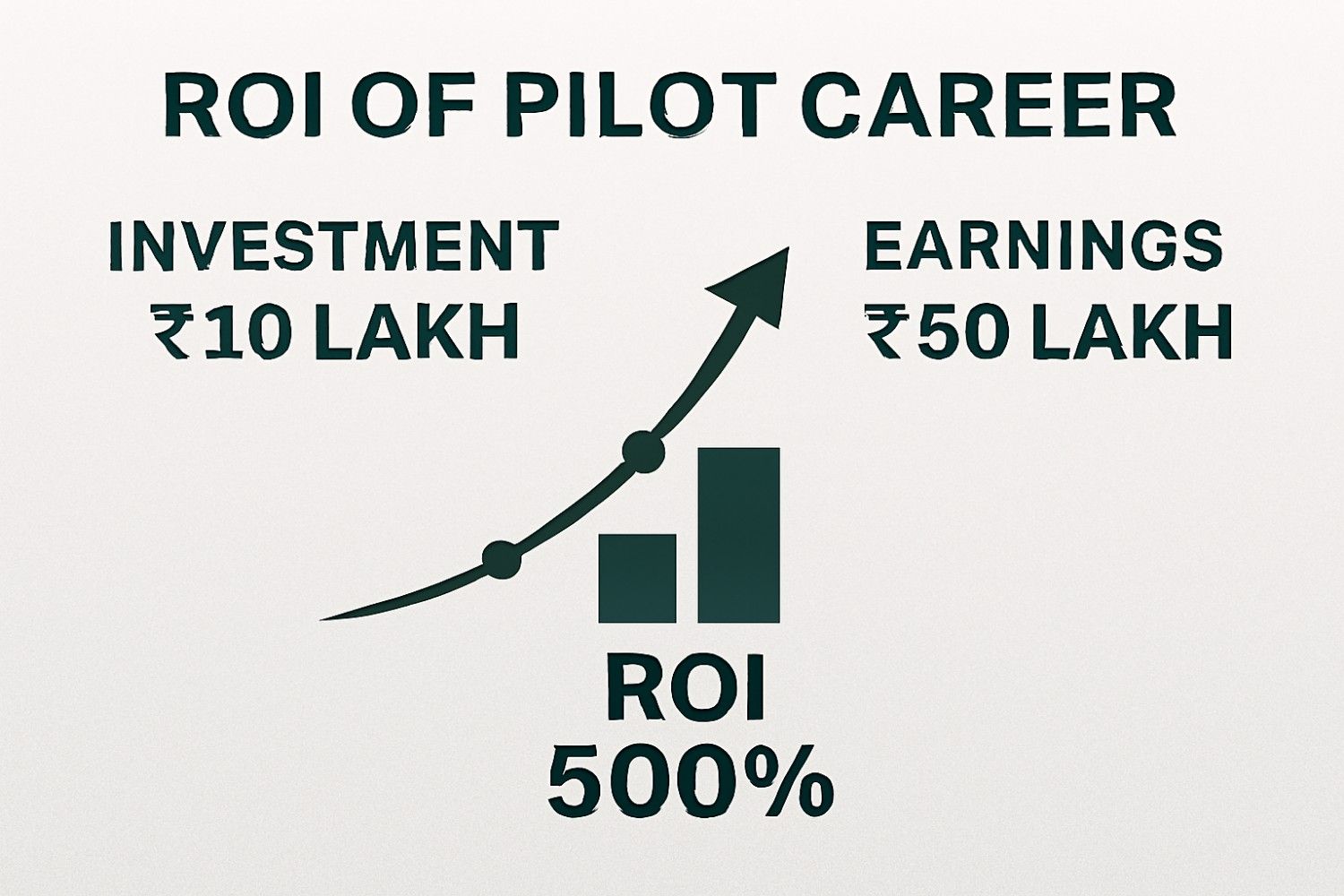
If someone invested ₹70 lakh and got the first job at ₹1.5 lakh/month, the annual earnings will be ₹18 lakh. In such cases, it takes approximately 4–5 years to recover the investment. However, sometimes pilots take time to secure a job, which can extend this period.
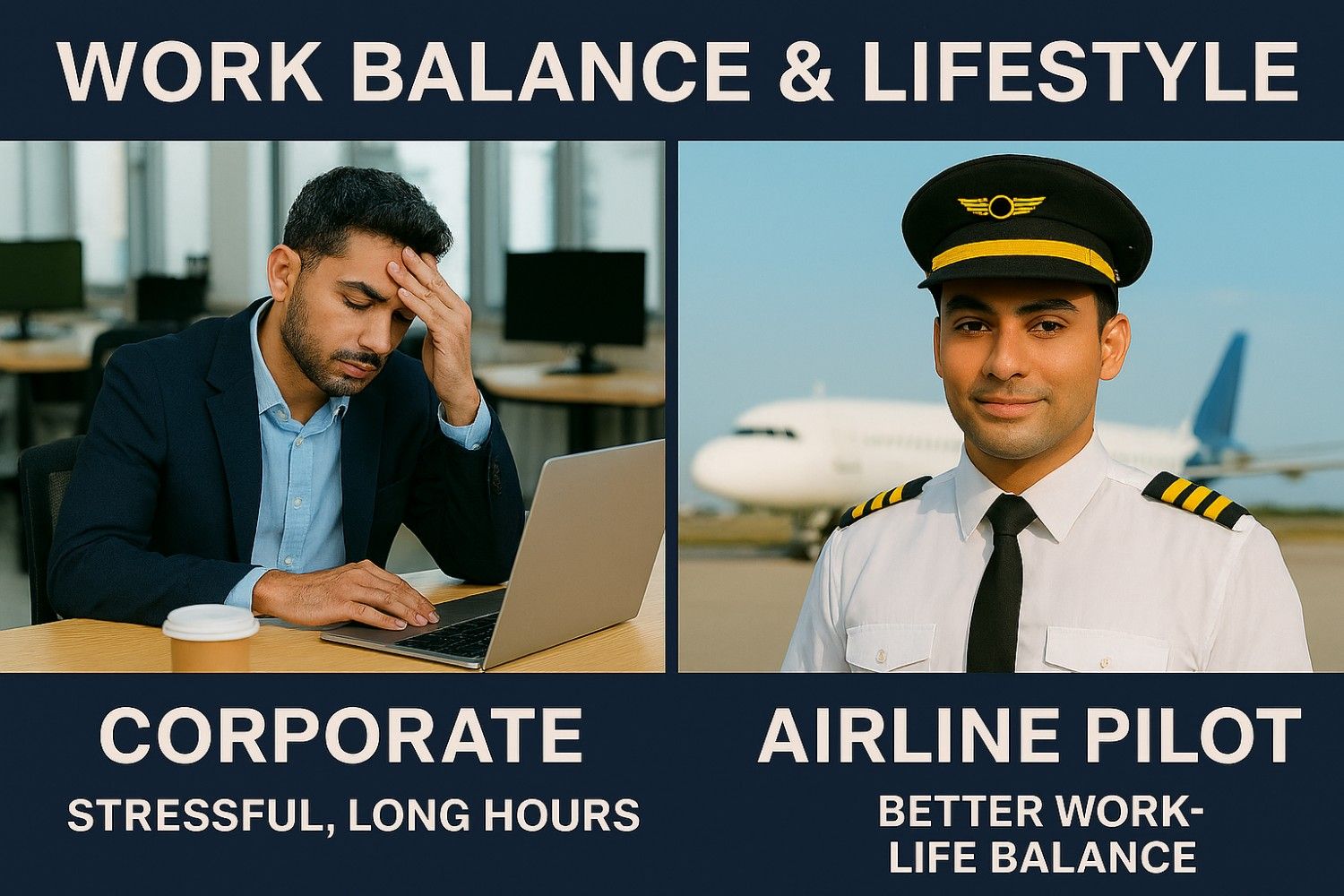
Now, let us see what the difference is between the lifestyle of the people with a corporate job and a pilot job.
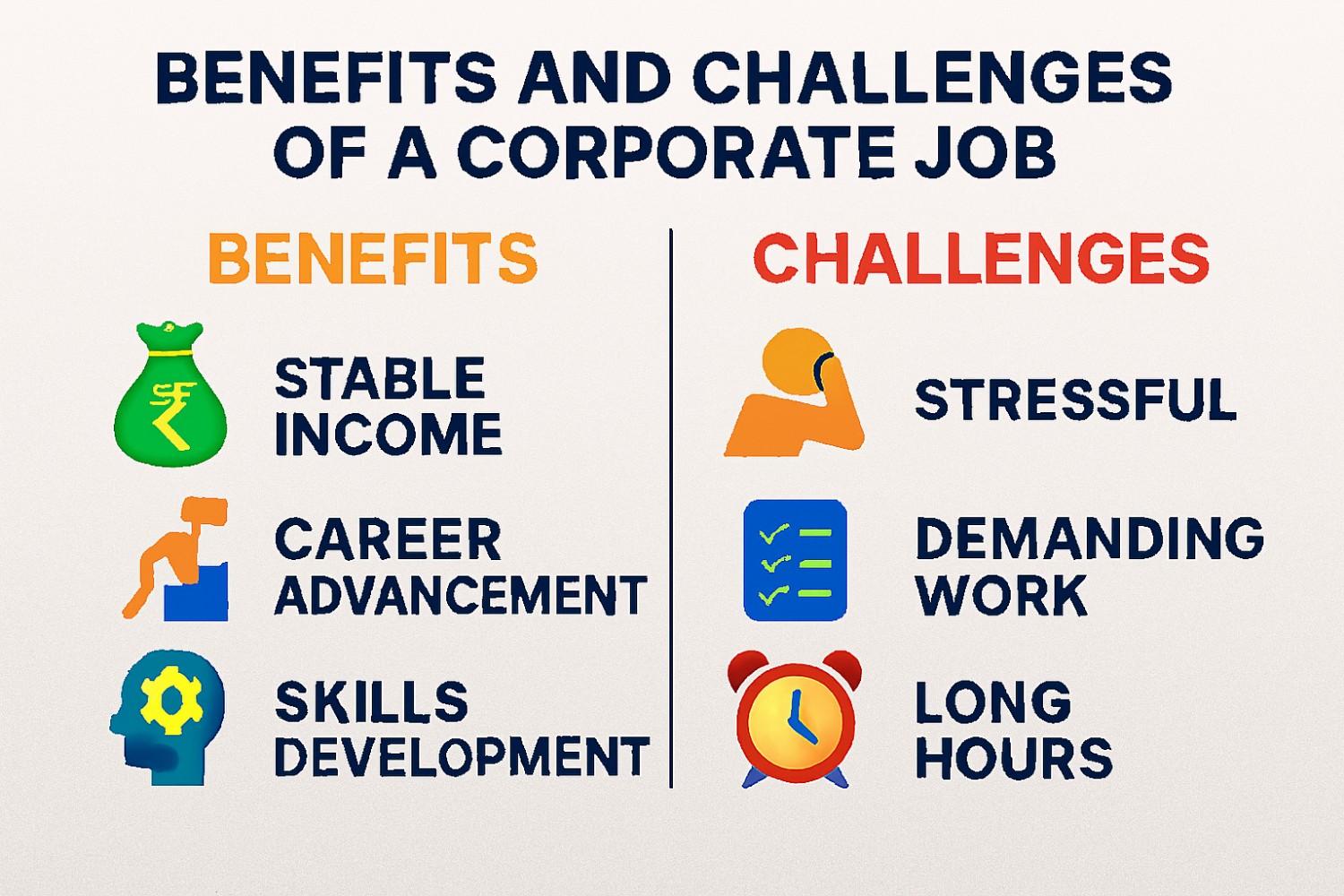
Corporate Lifestyle
A 9-to-6 schedule is common in a corporate job, but deadlines, project pressure, and work-life balance are significant challenges. However, the work-from-home facility, holidays and stability make it convenient.
Benefits: A corporate job offers various benefits, including PF, bonus, medical insurance, and paid leaves. So, it can be easily said that if a person is in a corporate job, then also he/ she can also earn well and have a lot of added benefits up their sleeve.
Challenges: If the challenges of a corporate job are to be discussed, then there is a professional burnout and one often has to face a delay in promotion.
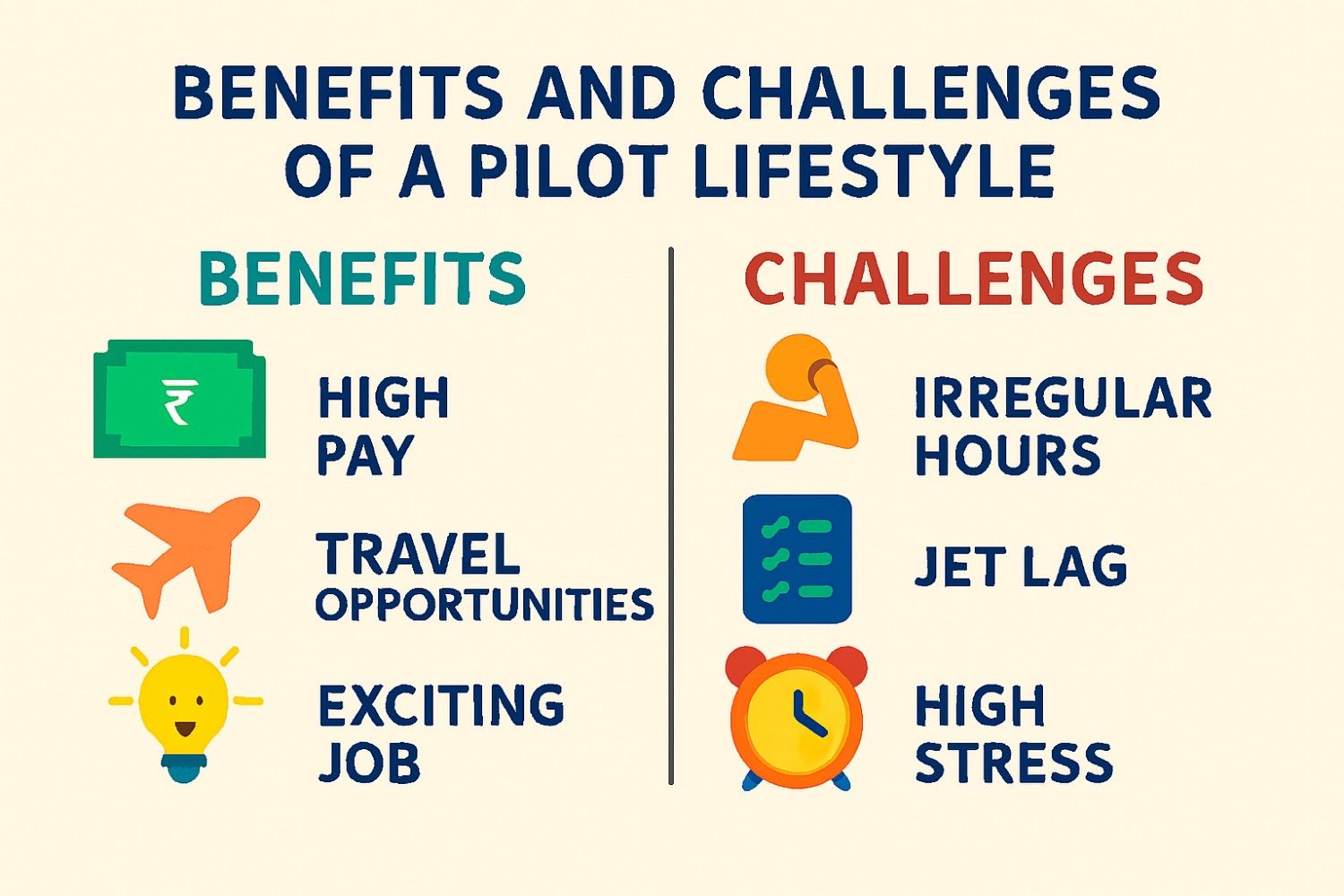
The life of a pilot may appear glamorous, but it also presents challenges, including maintaining constant medical fitness, irregular sleep patterns, frequent relocation, and being away from family.
Benefits: Talking about the benefits of being in a pilot job, they are a high salary, an opportunity to travel the world and not just this, people can develop contacts with new people
Challenges: On the other hand, when it comes to the challenges that take centre stage for pilots, they include rigorous medical checkups, a limit on flying hours, and mental stress. Many discussions have been taking place regarding the requirement for pilots to pass fighter pilot-grade medical examinations to become commercial pilots. This decision is not welcomed by most commercial pilots across the country.
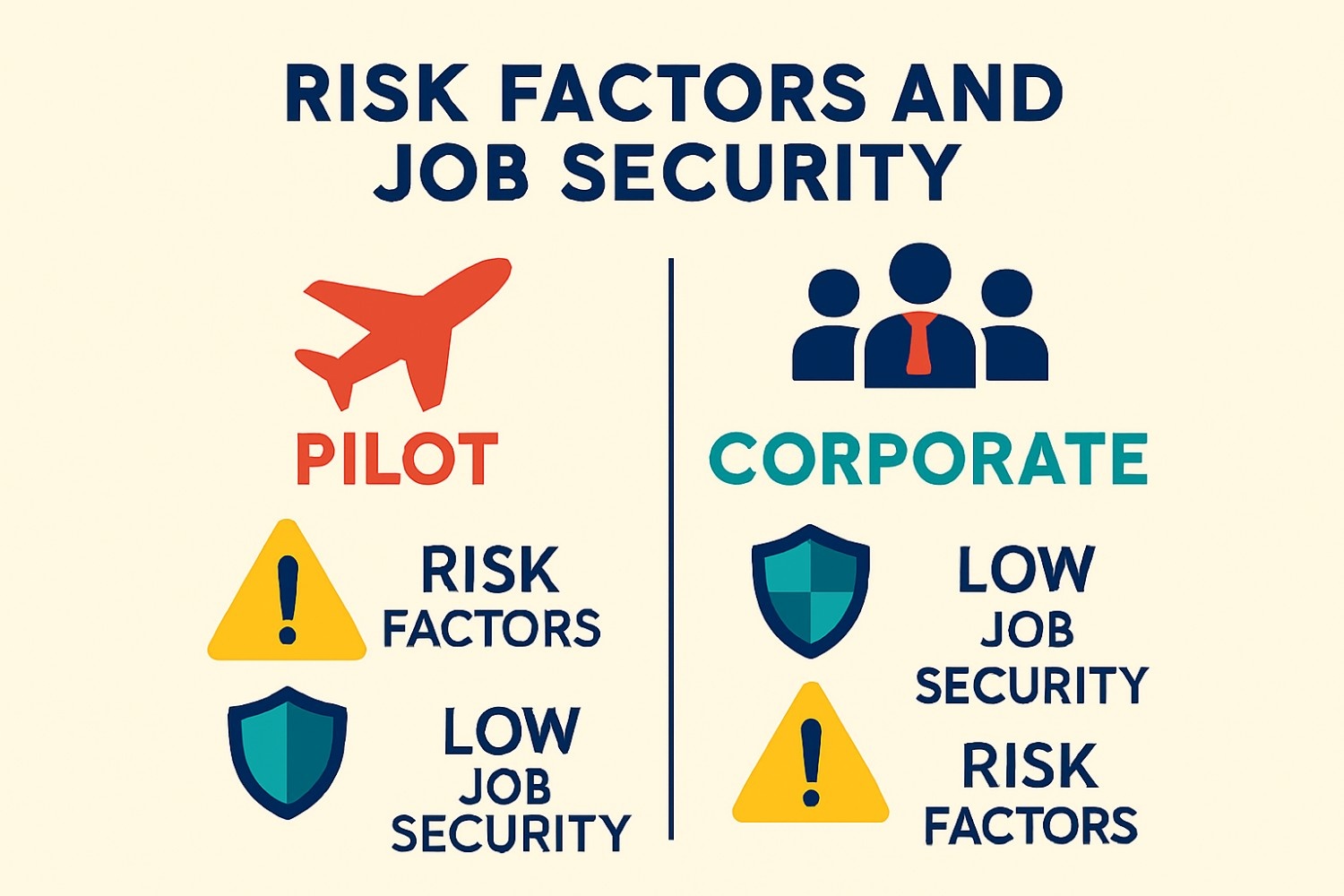
In the corporate sector, many jobs are at risk due to changing trends of technology and automation, but skill upgradation can help in long-term sustainability.
The job of an airline pilot depends on more specific skills. If health deteriorates, the job may be in danger. Apart from this, industry shutdowns (like during COVID) also have a huge impact.
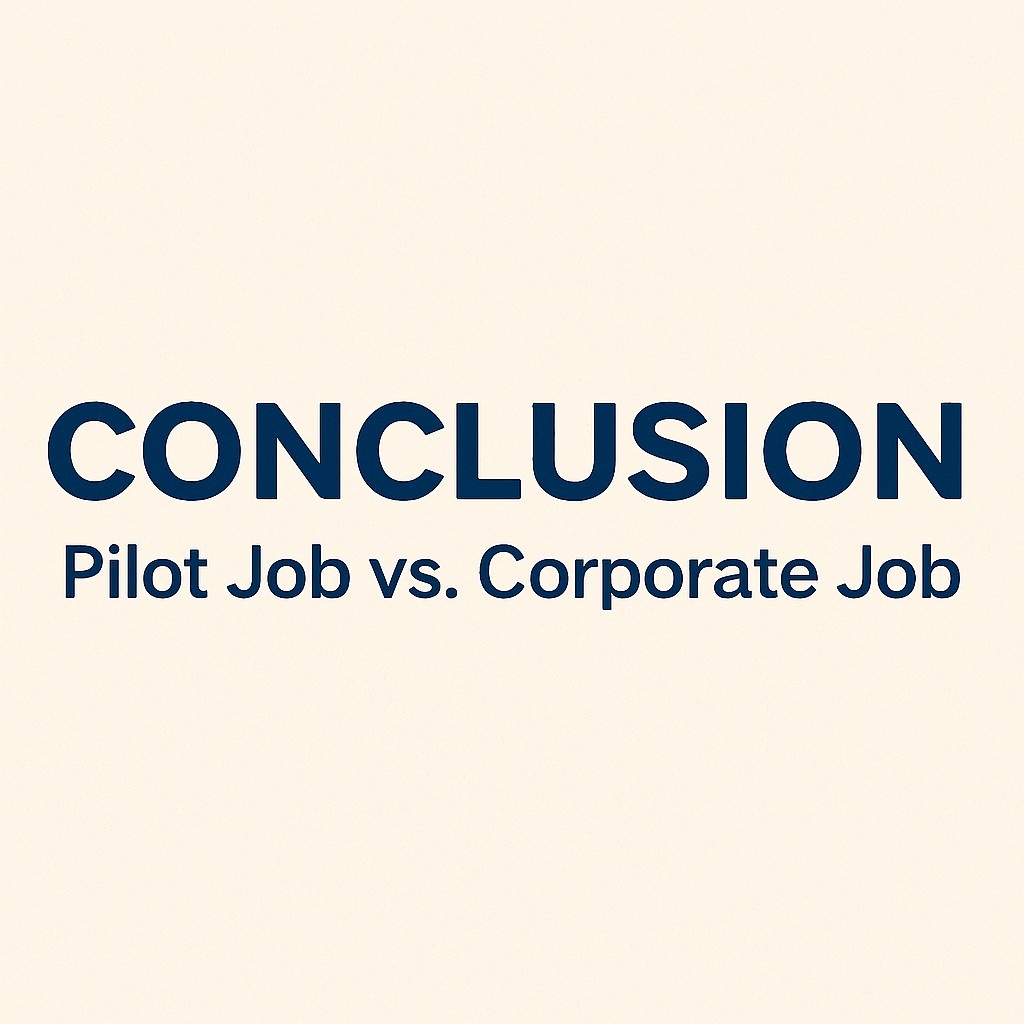
Both corporate jobs and airline pilot careers are great, but they are suited to different personalities and preferences. If you are interested in technology, business, management, or consulting, and want a stable career with low investment, then the corporate field is a suitable option. On the other hand, if you want a life full of adventure, flying and glamour and are ready to invest heavily, then becoming a pilot can be a great option.
In terms of ROI, a pilot's salary is significantly higher than that of a corporate employee, but the investment and risk are also higher. On the other hand, stability and growth in a corporate career are slow but reliable.
Ultimately, this choice depends on your inclination, financial condition, risk-taking ability and personal preferences. Success in any career will be achieved only if you work in it with full loyalty and dedication. If you want to become a commercial pilot, it is essential to enroll in a reputable flying school like Flapone Aviation. Here, you will be able to learn and master the pilot skills and ace in your career as a commercial or airline pilot.
Connect with our aviation mentors to find the right path toward becoming a licensed aircraft pilot.